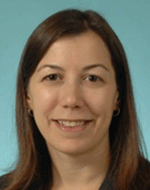The new federal health-care law gives millions of Americans access to medical insurance. However, choosing the right coverage — a daunting task for most people — could be even more difficult for those who have never had health insurance, according to a new study at Washington University School of Medicine in St. Louis.
Although the research took place before enrollment under the federal Affordable Care Act began last month, the study’s authors identified hurdles that appear to be common among the uninsured. These include a lack of understanding familiar terms, such as co-insurance and deductible, that are necessary to compare and choose among available health plans.
“Selecting the best health-insurance option can be confusing, even for people who have gone through the process for many years,” said Mary Politi, PhD, an assistant professor of surgery and the study’s lead author. “We need to do a better job communicating information about health insurance to help people make the choices that work best for them.”

The study, one of the first to examine how well people who never have had health insurance understand key insurance terms and details, appears online in Medical Care Research and Review.
In October, U.S. citizens began enrolling for health-care coverage expanded under the Affordable Care Act, popularly known as Obamacare. The plans take effect as early as Jan. 1; open enrollment continues until March 31.
Findings from the study suggest that health-care navigators — workers hired under the federal law to help people sign up for health insurance — will play an important role. The navigators could simplify details, use visuals and provide context for unfamiliar terms to help people better understand their health insurance choices, the study’s authors said.
Researchers examined how well people who have been without health insurance understand such key terms as co-insurance, deductible, out-of-pocket maximum, prior authorization and formulary. (The latter is a list of medications that are approved under a health insurance policy.) Those terms were among the most difficult for study participants, 51 uninsured Missourians from rural, urban and suburban parts of the state.
The study also found that:
- People who have been without health insurance but have had experience with auto insurance were more familiar with deductibles.
- Those who have had health insurance understood more terms than those who have never had it.
- Even individuals who have had previous experience with health insurance confused the meaning of similar terms, such as urgent care and emergency care or co-insurance and co-payment.
Based on their findings, the researchers are testing ways to improve communication about health insurance and the newly created state and federal health insurance exchanges. This effort is especially important for individuals with limited health literacy and math skills, given the complex information required to understand plan differences, Politi said.
In addition to Politi, the research team includes: Kimberly Kaphingst, ScD, associate professor of surgery at the School of Medicine; Matthew Kreuter, PhD, associate dean for public health at the Brown School; and Timothy McBride, PhD, professor at the Brown School, all of WUSTL, and Enbal Shacham, PhD, assistant professor of behavioral science and health education at Saint Louis University.
This project was supported by grant number R21HS020309 from the Agency for Healthcare Research and Quality. The content is solely the responsibility of the authors and does not necessarily represent the official views of the Agency for Healthcare Research and Quality.
Politi MC, Kaphingst KA, Kreuter M, Shacham E, Lovell MC, McBride T. Knowledge of health insurance terminology and details among the uninsured. Medical Care Research and Review, published online Oct. 24, 2013.
Washington University School of Medicine’s 2,100 employed and volunteer faculty physicians also are the medical staff of Barnes-Jewish and St. Louis Children’s hospitals. The School of Medicine is one of the leading medical research, teaching and patient care institutions in the nation, currently ranked sixth in the nation by U.S. News & World Report. Through its affiliations with Barnes-Jewish and St. Louis Children’s hospitals, the School of Medicine is linked to BJC HealthCare.